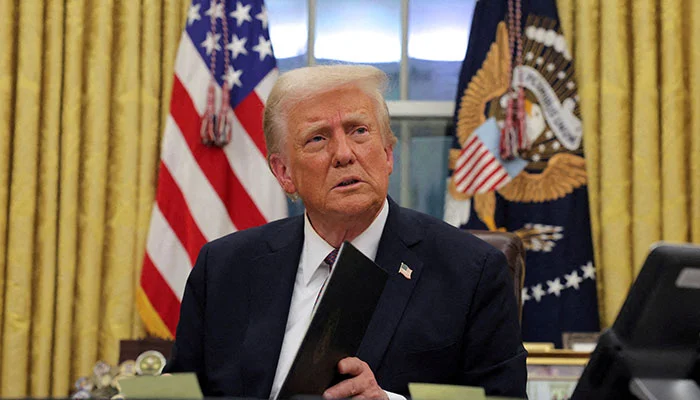New Tariffs
WASHINGTON: US President Donald Trump, on Tuesday, reiterated his intentions to impose tariffs on the European Union and China, citing the illegal fentanyl trafficking from China through Mexico and Canada as a key reason for the potential duties. Trump’s remarks came a day after his inauguration and marked a continuation of his hardline stance on trade.
Trump’s administration is reportedly discussing a 10% punitive tariff on Chinese imports, with a firm deadline of February 1 for imposing 25% tariffs on both Canada and Mexico, as well as duties on China and the EU.
In his comments, Trump emphasized that the European Union, among other countries, had large trade surpluses with the US, which he deemed unfair. He stated, “The European Union is very, very bad to us,” suggesting tariffs were the only way to achieve fair trade relations.
The threat of tariffs was also linked to the ongoing issue of fentanyl trafficking, with Trump demanding stricter controls from Canada and Mexico to prevent the illicit drug trade, particularly from China.
White House trade advisor Peter Navarro reinforced this, explaining that the tariffs were a way to pressure Mexico and Canada to address the fentanyl problem, which claims 300 American lives daily.
In addition to the tariff threats, Trump signed a memorandum requiring federal agencies to complete comprehensive reviews of various trade issues by April 1.
This includes an analysis of persistent US trade deficits, unfair practices, and currency manipulation, particularly by China.
The review also seeks recommendations for implementing a “global supplemental tariff” and changes to the de minimis duty-free exemption, which has been blamed for illicit fentanyl imports.
Despite the tariffs’ potential impact on global markets, Trump’s more gradual approach has been welcomed by stock markets, with the S&P 500 rising to its highest level in a month.
Experts believe Trump is taking a more measured approach to ensure he has a firm legal foundation for these actions while continuing to use trade as leverage to achieve his policy goals.
In response to Trump’s February 1 deadline, Mexico and Canada have adopted a cautious tone. Mexican President Claudia Sheinbaum stated that Mexico would assert its sovereignty and independence, responding to US actions “step by step.”
Meanwhile, concerns over potential disruptions to agricultural exports, particularly corn, remain, as both Mexico and Canada are significant trade partners for US corn and ethanol. The uncertainty surrounding these tariffs is raising alarm among US farmers and trade groups.


